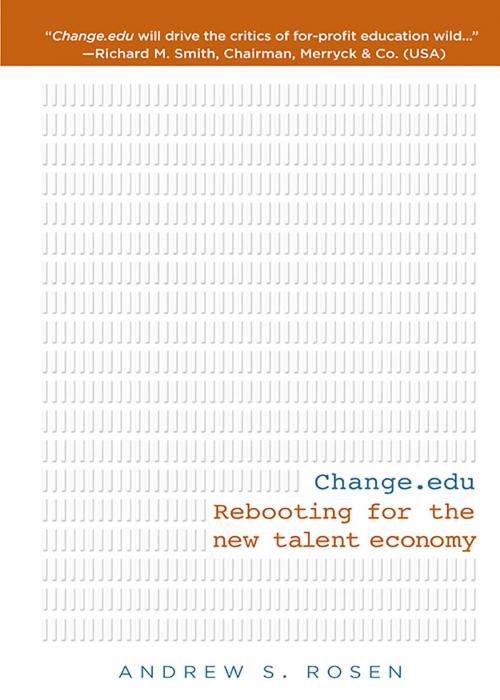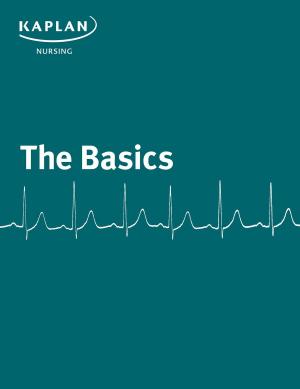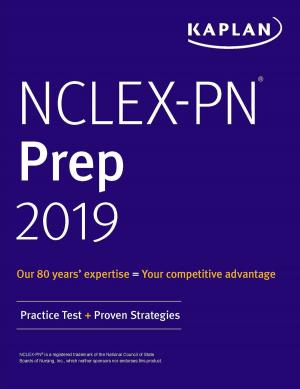Change.edu
Rebooting for the New Talent Economy
Business & Finance, Business Reference, Education, Nonfiction, Reference & Language, Education & Teaching, Educational Theory, Educational Reform| Author: | Andrew S Rosen | ISBN: | 9781607148814 |
| Publisher: | Kaplan Publishing | Publication: | October 4, 2011 |
| Imprint: | Kaplan Publishing | Language: | English |
| Author: | Andrew S Rosen |
| ISBN: | 9781607148814 |
| Publisher: | Kaplan Publishing |
| Publication: | October 4, 2011 |
| Imprint: | Kaplan Publishing |
| Language: | English |
It’s no wonder American higher education is facing a crisis.
While low-income students can’t find a spot in their local community colleges for lack of funding, public four-year universities are spending staggering sums on luxurious residence halls, ever-bigger football stadiums, and obscure research institutes. We have cosseted our most advantaged students even as we deny access to the working adults who urgently need higher education to advance their careers and our economy. In Change.edu: Rebooting for the new talent economy Andrew S. Rosen clearly and entertainingly details how far the American higher education system has strayed from the goals of access, quality, affordability, and accountability that should characterize our system, and offers a prescription to restore American educational pre-eminence.
To change, our system will have to end its reflexive opposition to anything new and different. Rosen describes how each new wave of innovation and expansion of educational access— starting with the founding of Harvard in 1636, and continuing with the advent of land-grant colleges in the 19th century, community colleges in the 20th century and private sector colleges over the last two decades—has been met with misunderstanding and ridicule. When colleges like the University of California, Cornell and Purdue were founded, they were scorned as “pretenders to the title of university” – language that tracks later criticisms of community colleges and most recently for-profit colleges.
Avoiding that condescension is just one of the reasons colleges have come under the sway of “Harvard Envy” – schools that were founded to expand access feel an inexorable tug to become more prestigious and exclusive. Even worse, the competition for the best students has led universities to turn themselves into full-fledged resorts; they’ve built climbing walls, French bistros and 20-person hot-tubs to entice students to their campuses.
How can America address an incentive system in higher education that is mismatched to the challenges of the years ahead? In Change.edu, Rosen outlines “seven certainties” of education in the coming 25 years, and presents an imperative for how our system must prepare for the coming changes. He proposes a new “playbook” for dealing with the change ahead, one that will enable American higher education to regain its global primacy and be a catalyst for economic growth in the 21st century.
It’s no wonder American higher education is facing a crisis.
While low-income students can’t find a spot in their local community colleges for lack of funding, public four-year universities are spending staggering sums on luxurious residence halls, ever-bigger football stadiums, and obscure research institutes. We have cosseted our most advantaged students even as we deny access to the working adults who urgently need higher education to advance their careers and our economy. In Change.edu: Rebooting for the new talent economy Andrew S. Rosen clearly and entertainingly details how far the American higher education system has strayed from the goals of access, quality, affordability, and accountability that should characterize our system, and offers a prescription to restore American educational pre-eminence.
To change, our system will have to end its reflexive opposition to anything new and different. Rosen describes how each new wave of innovation and expansion of educational access— starting with the founding of Harvard in 1636, and continuing with the advent of land-grant colleges in the 19th century, community colleges in the 20th century and private sector colleges over the last two decades—has been met with misunderstanding and ridicule. When colleges like the University of California, Cornell and Purdue were founded, they were scorned as “pretenders to the title of university” – language that tracks later criticisms of community colleges and most recently for-profit colleges.
Avoiding that condescension is just one of the reasons colleges have come under the sway of “Harvard Envy” – schools that were founded to expand access feel an inexorable tug to become more prestigious and exclusive. Even worse, the competition for the best students has led universities to turn themselves into full-fledged resorts; they’ve built climbing walls, French bistros and 20-person hot-tubs to entice students to their campuses.
How can America address an incentive system in higher education that is mismatched to the challenges of the years ahead? In Change.edu, Rosen outlines “seven certainties” of education in the coming 25 years, and presents an imperative for how our system must prepare for the coming changes. He proposes a new “playbook” for dealing with the change ahead, one that will enable American higher education to regain its global primacy and be a catalyst for economic growth in the 21st century.















